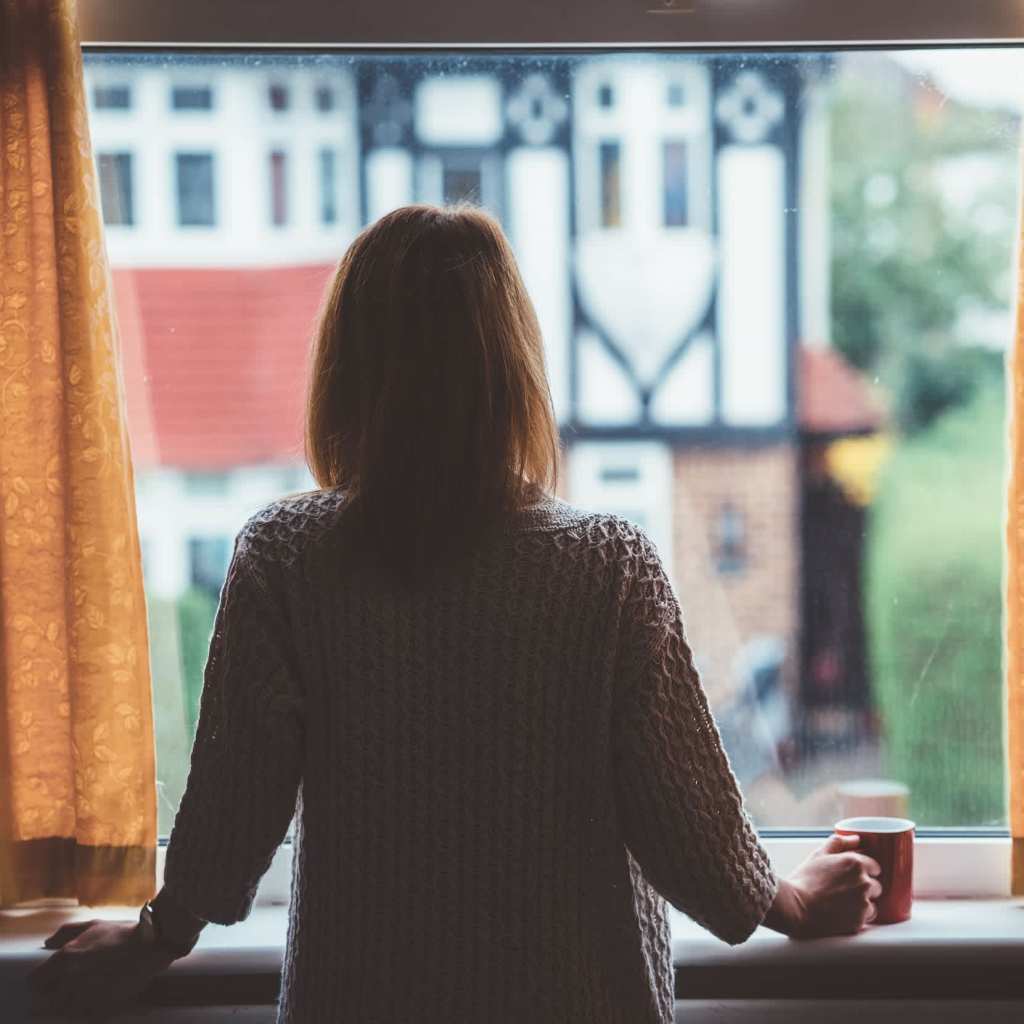When you’re super stressed or overwhelmed, the simplest acts of self-care can sometimes feel incredibly difficult to actually do.
Deep down, you might know that breathing exercises or a three-minute meditation will help you manage your anxiety, relieve that tension headache, or offer a few minutes of peace, but for some reason, no part of you feels up for it.
Gina Della Penna, LMHC, confirms that when you’re focused on responding to life’s stressors, it can be very difficult to set aside time to take care of yourself, “whether it’s the basics, like making the time to have lunch, or doing something restorative, like attending a yoga class.”
According to Della Penna, there are several reasons this might be the case.
One explanation is something called negativity bias.
“Human brains are designed to have a negativity bias,” Della Penna explains.
“This means that we tend to pick up and focus on things that have the potential to be threatening or bad for us. In human history, it’s been helpful in our survival to pay attention to things that could hurt us. However, sometimes it can get in our way, like when we place too much importance on them than is really warranted.”
That also means potentially ignoring our needs.
Related: This Is What Happens When You Ignore Signs of Stress For Too Long
Societal pressures also come into play.
“Societal values emphasize things like achievement, self-reliance, and productivity. These can contribute to the inner voice that tells you to ‘keep going’ or ‘just deal’ with the stress, or that it would be ‘self-indulgent’ to take the time to care for yourself,” Della Penna notes.
Finally, you might be feeling depleted of the energy to take care of yourself.
“Your response to stress taps into your physical and mental resources, often leaving you feeling drained,” Della Penna explains.
“It can be hard to find the energy to implement self-care – ironically, the very thing that could help you feel restored and re-energized.”
One thing you definitely don’t want to do in any of these situations is guilt yourself for not feeling like practicing self-care – it’ll only make yourself feel worse.
Della Penna says if you do realize that you’d benefit from making your needs a priority, these three tips might be helpful in making that happen.
Practice Self-Compassion
“Why is it that we seem to have more patience and understanding for others than we do for ourselves? When you are stressed out, it’s helpful to practice some self-compassion,” Della Penna says.
Adding self-compassion into our lives isn’t always easy or seamless, so Della Penna suggests attempting it repeatedly (aka, practicing!) in order to incorporate it into your life.
“Try approaching yourself and your situation with some empathy – acknowledging how tough things are and that you are doing the best that you can with what you’ve got right now.”
Related: Feeling Frazzled? Use Any of These Simple Stress Relievers Right Now
Explore What You Need
“In a storm of stress, it can be hard to tune in to ourselves and figure out what we may be lacking,” Della Penna says.
So, to figure out what you need, she suggests identifying certain times of the day that allow you to check in with yourself.
“Maybe it’s when you first wake up before you get out of bed, or when you are brushing your teeth, or when you’re waiting for the coffee maker to finish making your cup of coffee,” Della Penna says.
“In those moments, take a deep breath and check in to what’s going on in your body and your mind. Is there an area that feels tense? Is your stomach growling and hungry? Are you feeling lonely? Burnt out? Scared?”
Experiment With Small Changes
Start small when it comes to self-care. In fact, Della Penna says that associating it with huge changes can make it seem unattainable.
“Taking care of yourself in tiny, subtle ways can feel much more doable and still have a positive impact. What could that look like? Maybe it’s getting soap in your favorite scent – a smell that can bring you a bit of pleasure each day. Maybe it’s trying to go to bed 30 minutes earlier than you normally do one night and seeing how that extra bit of sleep affected you. Maybe it’s opening a window to get some fresh air and hear nature sounds.”
Another important note? Self-care doesn’t have to require doing anything at all – so no, you definitely don’t have to do yoga or buy a candle, pay for a meditation app, or indulge in any wellness trend.
It can, in fact, take the form of doing absolutely nothing, Della Penna notes. Taking a nap, resting on the couch, or watching TV can all be defined as helpful moments of self-care.
Click here for more health and wellness stories, tips, and news.

